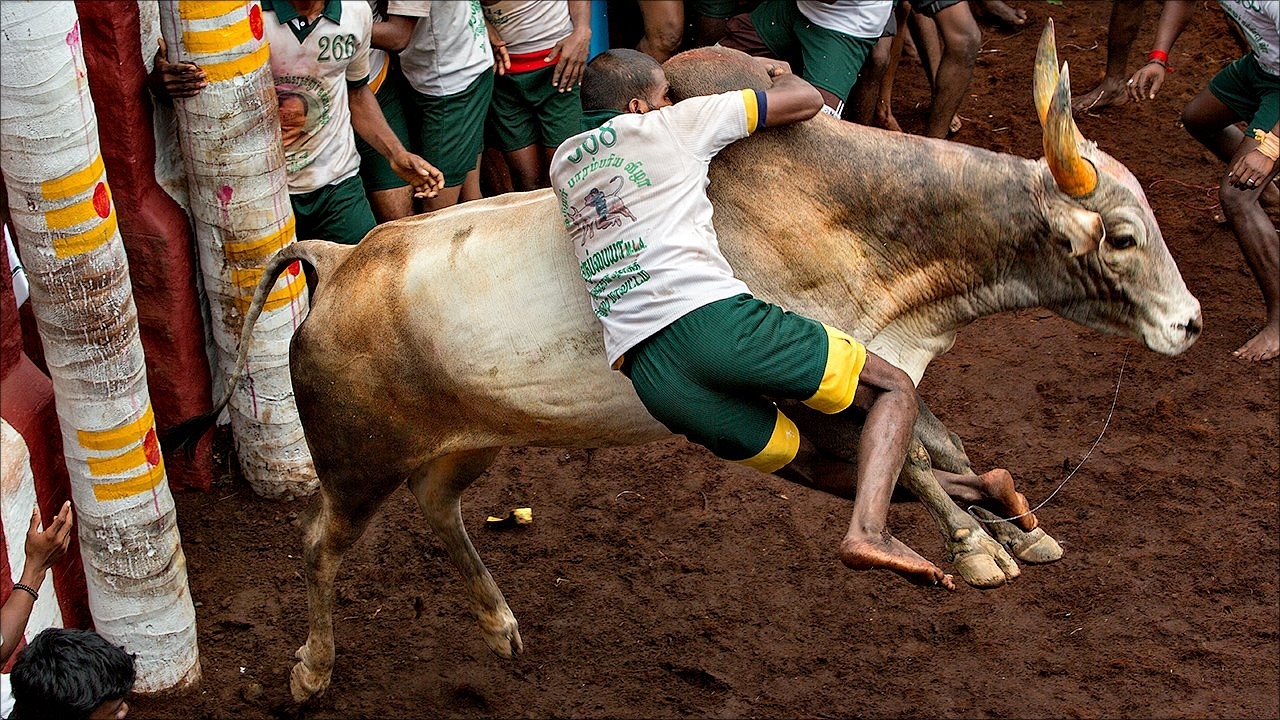Insta
Jallikattu’s Run-Ins With The Law: A Timeline

Boys playing Jallikattu
Jallikattu has been at the receiving end of court orders for over a decade now. Here is a timeline of all the legal troubles that have befallen Jallikattu over the years:
29 March 2006
The first ban against Jallikattu came in 2006 in the form of a judgement of the Madurai Bench of the Madras High Court.
Advocate L Shaji Chellan had filed a writ petition with the court seeking permission to conduct a rekla (bullock cart) race in Thaniankootam in Ramanathapuram district. After hearing the case, Justice R Banumathi (presently a Supreme Court judge) expanded the scope of the judgement and banned rekla, oxen races and Jallikattu, citing the Prevention of Cruelty to Animals Act (PCAA).
21 July 2009
The Government of Tamil Nadu passed the Tamil Nadu Regulation of Jallikattu Act (TNRJA). The Act set some conditions for holding Jallikattu, mainly allowing it with the written permission of the District Collector, between January and May of any year and with the condition that it must have taken place for at least five years.
27 November 2010
The Supreme Court permitted Jallikattu under the provisions of the state law alluded to earlier, for a period of five months starting 15 January of any year. The court further stated that all participating animals were to be registered with the Animal Welfare Board, who would also send representatives to monitor the events.
11 July 2011
The Ministry of Environment and Forests banned the use of bulls as performing animals. The scope of this ban extended to Jallikattu and other animal races across the country.
7 May 2014
The Supreme Court struck down the TNRJA, banning the sport altogether. It further asked the Government of India to amend the PCAA to bring bulls within its jurisdiction.
The court justified the ruling by saying cruelty was ‘inherent’ in these sports, the bulls were not ‘anatomically suited’ for such events, and their participation would cause pain and suffering.
7 January 2016
The Ministry of Environment, Forests and Climate Change amended its 2011 notification, allowing Jallikattu and bullock cart races across Maharashtra, Karnataka and Gujarat with specific conditions. The Collector’s permission was required and proper racing tracks provided, and bulls had to be tamed in Jallikattu within a radial distance of 15m.
26 July 2016
The Supreme Court, playing spoilsport again, overturned the government decision and once again banned Jallikattu and other related animal races.
Support Swarajya's 50 Ground Reports Project & Sponsor A Story
Every general election Swarajya does a 50 ground reports project.
Aimed only at serious readers and those who appreciate the nuances of political undercurrents, the project provides a sense of India's electoral landscape. As you know, these reports are produced after considerable investment of travel, time and effort on the ground.
This time too we've kicked off the project in style and have covered over 30 constituencies already. If you're someone who appreciates such work and have enjoyed our coverage please consider sponsoring a ground report for just Rs 2999 to Rs 19,999 - it goes a long way in helping us produce more quality reportage.
You can also back this project by becoming a subscriber for as little as Rs 999 - so do click on this links and choose a plan that suits you and back us.
Click below to contribute.
Latest